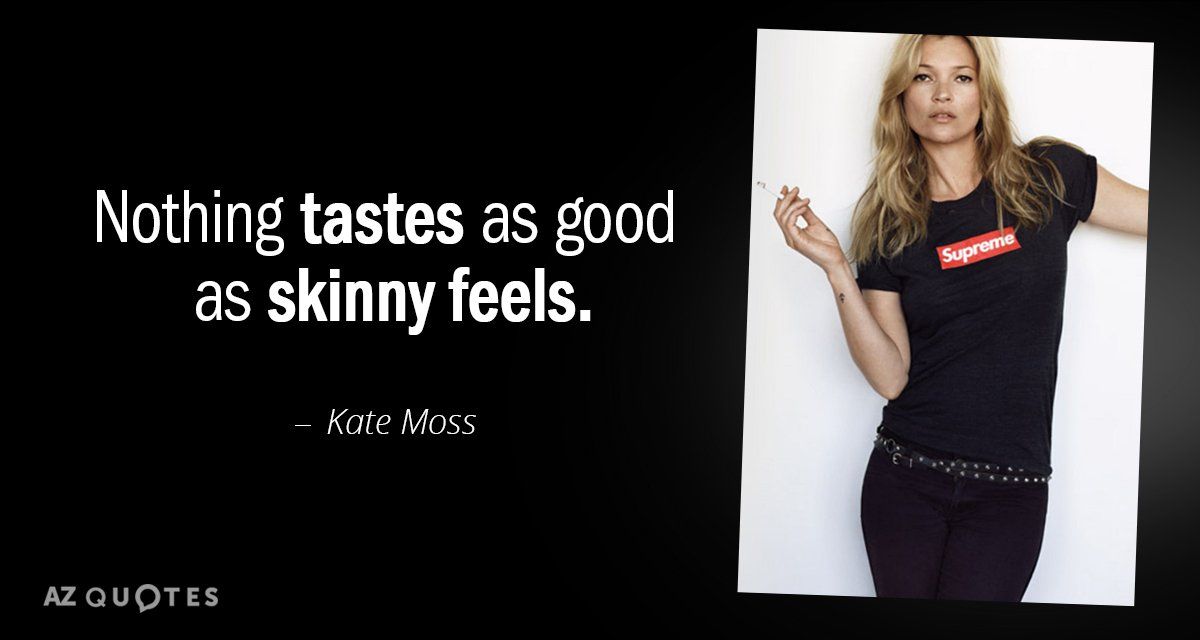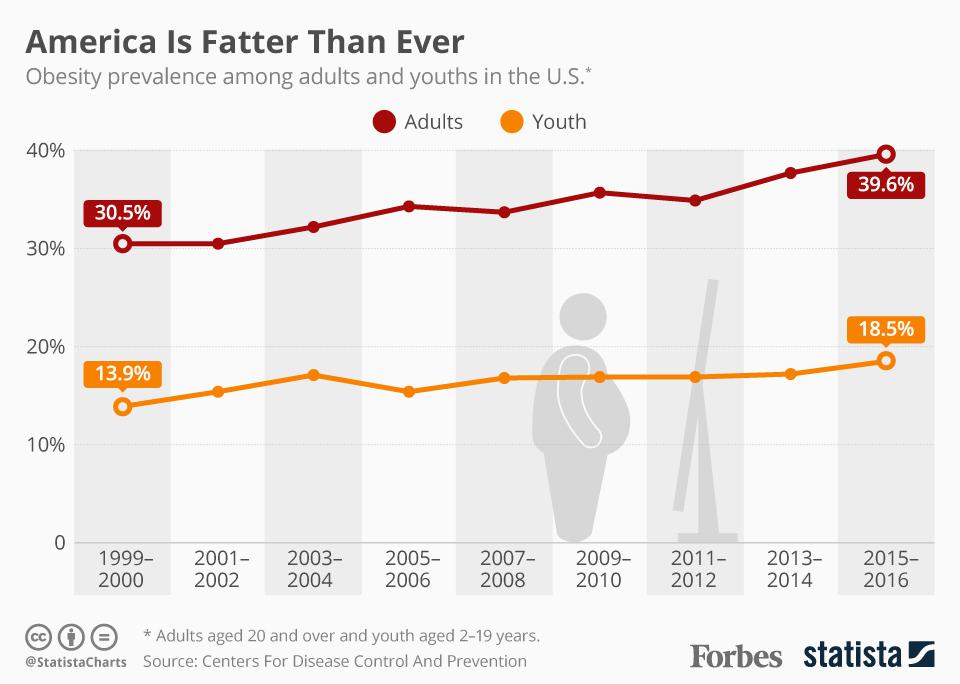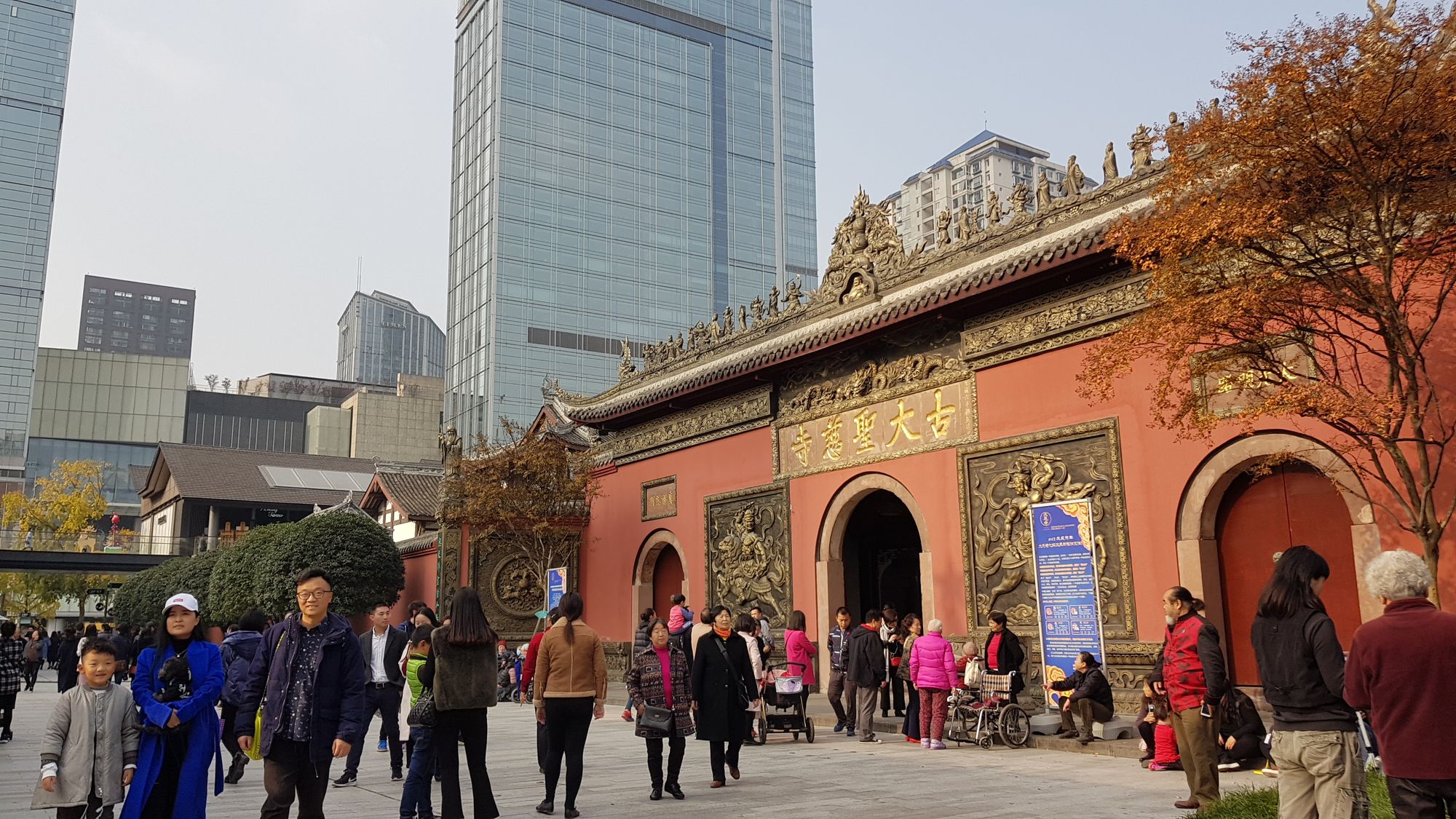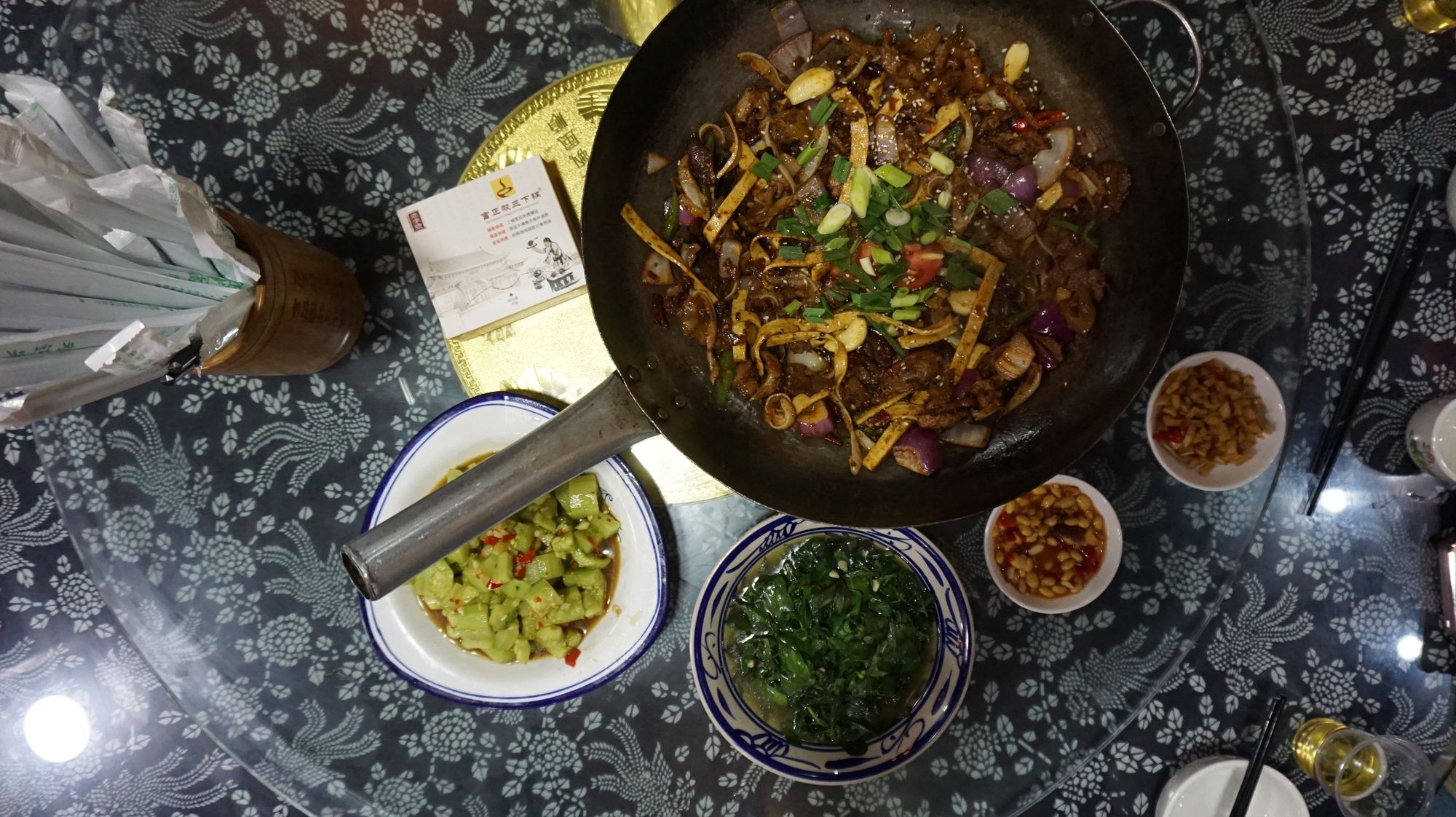The real reason everyone is dealing with an obesity epidemic

If you want to see this post in video form, you can check out the latest video I posted on my Youtube channel:
So I got monetized on Youtube off of an experiment in fasting... now over half my followers are from a vlog I did about a 14-day fast. And while I really did enjoy that experience and will very likely continue to fast throughout my life, I don’t think I have that much left to say about it.
And in fact, I’m a little skeeved out by how many people have watched it now – because way too many of the ones who did really didn’t bother listening to me when I said that this is not a diet channel. And I was not on a diet.
I actually find diet culture pretty gross.
Yet, despite many caveats in the video about how this wasn't a diet, I have somehow invited a lot of strangers to weigh in on my body and food intake in a manner that makes me feel… quite uncomfortable...
Since I did receive quite a surprising amount of comments that did get me kinda worried about all these random strangers, I figured I’d at least address this:
You have got to be more body positive everybody.
To yourself. To your community. To Youtubers who happen to be talking about fasting.
Because right now, I’m seeing a lot of takes on your own bodies and what you think of bodies and what you think I should be doing with my body… and very many of them are very… Yikes.
So consider this my own personal fight against that. Let’s talk about our bodies and what we actually should be worried about instead of people being or getting or trying not to get fat.
And we’re going to start this whole lecture off with the concept of...
“Health at Every Size.”
A health philosophy that is remarkably controversial for how sensible it truly is. And I have my suspicions as to why.
Loosely defined, it’s an approach that has been proposed to address weight bias and stigma for those living with obesity. And it has actually been around for a while (since the 1960s, in fact).
It argues that the current “diet for health” culture has only resulted in emotional and physical damage to patients, and fat stigma and weight bias to proliferate in society.
While most of them do believe that obesity is correlated with a wide variety of health problems, HAES hopes to address health through a weight-neutral approach, looking at other health biomarkers to encourage healthy habits and well-being.
So instead of focusing on weight loss when recommending diet and exercise, you focus on... say, what would make a body feel better but aren’t necessarily tied to a number on a scale – specific types of strength training for instance, testing for vitamin deficiencies, what’s a healthy poo.

Unfortunately, many many people who hear the words “don’t focus on weight loss” have this amazingly strong visceral reaction against it.
When they’re still being polite about it, they will insist that there is too much evidence that being obese does in fact correlate with a wide variety of health problems – from heart failure to high blood pressure to diabetes.
And, they seem to fear, if you tell people they COULD be “Healthy at Every Size,” you’ll then normalize obesity, which will cause everyone to think it’s okay to be obese.
Which logically, considering America has been getting fatter since about the late 1970s, would mean that the current epidemic probably stems from a bunch of people thinking it was cool to be fat…
…which you can totally see in media from that time onwards promoting being fat as awesome and desirable and not at all the thing you absolutely DON’T want to be…

Hmm.
Yes, media being pro-fat is not really a thing.
But then why would people – including doctors who’ve gone on the record expressing “concerns” about HAES – still worry that somehow even shifting the focus somewhat off a patient’s weight will lead to an explosion in proud heaving unhealthy chubbos?
Because, like many other fun parts of late capitalism individualism – being poor, being addicted, having cancer – we’ve turned “fatness” into a morality play.
So when you get fat, it’s because you’re giving into sin, straying from the path of totally normal society into the two worst things you can possibly be – LAZY and LACKING IN SELF CONTROL .
And since this is a morality play, you know what you need? You need to be shamed. Hard.
Now obviously there’s a lot of problems with this approach. The first of which is that shame is a terrible motivator! In work cultures, shame or fear-based management has been linked to higher turnover, less ability to complete work, and people hiding and denying problems rather than admitting to and solving them.
Relevantly, a study on addictions found that people with higher levels of shame were associated with higher levels of relapses and poorer overall health.
So if you wanted people to not get fat, you’re not really helping them by shaming them.
But even worse, by thinking shaming them is okay, it really does in fact overemphasize the importance of weight to health, often to the point of blinding people to just about everything else.
You’d think that with all the risks associated with being fat, doctors would take more care with patients who were already obese. Instead, one study found that doctors actually spend less time with overweight patients in the exam room, show less respect towards them and instead are more likely to recommend “losing weight” as the first and only course forward before addressing any other issues.
They are so disproportionately focused on fatness, and so convinced these fat patients are lazy and noncompliant, that they ignore or don’t bother with other tests to find out what might actually be wrong with their patients.
Imagine refusing to give a patient a cancer biopsy unless they first quit smoking. That’s basically what doctors are like to overweight people.
And what has our culture of fat shaming brought us?
Well, for all the nutritional knowledge we now have and the hundreds upon thousands of possible “food journeys” to choose from, and doctors literally refusing to see patients before they lose an extra tire first… we are or the first generation in years, seeing the biggest waistlines ever, and higher risks of heart disease and diabetes and depression…

And it’s because, actually, we have already normalized “obesity.”
Not in a “wow being uncomfortably overweight is so fricking great guys” kind of personal decision way.
But rather, in a way where everything about our system ensures that a huge amount of people are bigger than they want to be, and upset about it, and unable to do anything really significant about it.
Because our systems are inherently OBESOGENIC.
An Obesogenic Environment
So “obesogenic” is just a fun way to say that an urban environment is not “designed for health.” And I think anybody who’s been to a poorly planned city can kind of already picture where this is going.
There are obviously “bad” things, of course – like pollution of water, air, noise – but also the subtle ways in which layouts can affect us. For instance, how much of the urban space is walkable. And it’s actually quite stark how much a “walkable” environment can have an effect on your body weight.
In fact, in 2007, urban studies scientists in the United States launched something called a “Walk Score” – rating how close housing was to nearby amenities, community-use spaces like parks, and public transport systems.
And studies on that algorithm found that there was a pretty big effect walkability had on body weight. One study found that people living in a sprawling urban county like Geuga, Ohio – with a walk score of “9” weighed on average 6 pounds more than people living in New York, the most walkable city in America.

A study in Europe found that the only two factors linking consistently to obesity were urban sprawl and land use.
Why are so many urban environments so unwalkable? It's simple.
Creating a walkable – and thereby lovely and liveable – urban environment requires the kind of complex planning and general “inefficiencies” that real estate developers only want to think about when there are people willing to pay top dollar for it. The Walk Score algorithm was bought by real estate brokerage Redfin in 2014, partially because being able to promote a high walk score also increased the property value of an area.
But it’s much more efficient for city planners to crowd industry in one area, commercial in another, and residential in a third, linking them together with a highway system that requires a lot less upkeep because it pushes almost all the costs on private citizens.
Because for sidewalks to be usable, you also need shade, which requires upkeep. For community spaces, you’ve usually got to have some kind of combo cleaner/security system, which requires upkeep. For public transport, you need an entire department dedicated to planning out routes and leasing vehicles and everything else that goes along with that.

Even in hyper urban cities like Shanghai, China – there’s a marked difference in walkability depending on whether you’re in an older, now more expensive, mixed-use area or if you’re living in the more of the outside sprawl districts. If everyone lives in one area and works/shops in another, public planners can sell plots of land with really clear cut usage & tax specs to developers that can then “maximize the value of every square foot” – actual live-ability be damned.
And the poorer the people you’re building for, the less likely you are to care that they have access to the things that would make them do anything but get to work. Which leads me to actually probably a more important point…
An Obesogenic Work Culture
You know what’s also been on the rise in terms of healthcare problems? Back pain and carpal tunnel syndrome.
And while maybe some of those people are getting those problems from having too much fun playing video games, it’s much more likely that this stems from just how much time we – especially us in developed countries - spend now in office chairs at work.
Because not only has our work just generally gotten less physically labor intensive on a wide scale, we’re also at work for way longer than we used to be, even compared to times that generally everyone agrees were categorically “not great.”
Like the Middle Ages. We often talk about how being a peasant in the middle ages sucked – and yes, they had terrible healthcare and few social services and very little rights… but do you know what they did have? A ton of vacation!

An adult Medieval peasant in ye old Kingdom of Britain worked 1620 hours annually, if you counted what was often documented to be three hour lunch breaks as “working.” The average American in 2017 worked 160 hours more than that.
When automation began to happen post the Industrial Revolution, Experts posited that we would soon have more leisure than we know what to do with. John Maynard Keynes famously expected us to one day only be able to fill 20 hours a week with our actual work life.
Instead, our productivity going up seems to have only increased the average amount of hours worked.
In the United States, studies have found that most workers saw working hours increase since the 1970s but with little extra increase in pay – meaning that most adults are working more hours to try to get to the same standard of living.
We may be creating triple or quadruple the value of a 17th century farmer, but we have less time to hang out, relax, and self actualize than ever.
In fact, we are SO stressed out that many of us choose to use what time we do have to ourselves to completely disassociate.
We are in a culture of constant burn out. And I don’t know about you, but when I’m burnt out, that’s when I feel most prey to my worst impulses - to drink, to eat, to play Imperial Harem tap tap games on my mobile until I literally can’t keep my eyes open. Anything for a quick hit of dopamine.
But it’s not just America that’s experiencing longer work hours. I’m in China, which has seen the rise of something called 996 working culture in urban environments – A cutesy way to say that many jobs now unofficially require you to be there 9am to 9pm, six days a week.
Guess who was more likely to be obese? Urban workers who work more than 40 hours a week, as opposed to those who work less than 40 hours a week.
Similarly, another culture of overwork – Japan – found that the more hours a man worked, the more likely he was to have something called “metabolic syndrome.”
Meanwhile, Greece (especially Crete), Hungary, and the United Kingdom have seen some of the highest rates of obesity increases in Europe. They also incidentally work some of the longest hours in Europe.
So you see this positive correlation between overwork and overweightness in most places of the world.
Now imagine a system that has created this life for us – one that has exhausted us physically and mentally and emotionally and then is like “Well, if you only watched your diet and exercised more, you’d all be thinner.”
My sneaking suspicion is if work culture changed wholesale, so too would people’s motivations to move around. Not just to exercise, but to generally enjoy life and being a body in the physical world.
An Obesogenic Food System? Nah...
So here’s where I would have maybe also gone into diet and how the way we approach food has also changed in these ensuing years…
But actually, I don’t want to. Because the whole reason I made this video in the first place is because I was annoyed by how many people were offering unsolicited advice on what I should or should not be eating to lose weight in a video that was about Not Eating... BUT NOT FOR LOSING WEIGHT.
Have our food habits changed because of the prevalence of cheap and abundant calories? Probably yes.
Is it likely that those cheap calories are also low in nutritional value and designed to hit reward centers in mildly addictive ways? Probably yes.
On a whole, would populations benefit from better access to more wholesome foods and education around them? Probably yes….? I mean, I don’t know. I’d like to hope so.

What I do know is that we technically have more food knowledge than at any other point in our history, and more potential heavily researched and structured diet plans than ever before. And yet, the amount of people who are able to lose weight and then keep it off continues to be minimal.
In fact, a UCLA study found that most of us who get on diets end up even more obese than if we had never dieted at all.
But instead of contending with that crazy ass factoid, both on Youtube and in real life, we have people yelling a lot of conflicting advice at each other and at fat people – and then shaming each other when all but the golden few of us are actually able to get to some arbitrary weight goal.
That is insane. Stop it.
If nobody’s asking you specifically, stop giving advice on losing weight. Chances are your diet is barely working for you, but also even if it is, it might not work for the health profile of that other person (WHO DID NOT ASK YOU).
Stop assuming that everyone wants to lose weight in the first place. People do funny health things for all variety of reasons.
If you are concerned about your own weight, feel free to research what works for you diet-wise, but try to maintain some sort of healthy holistic mentality about it. And you can tell when you’re not being healthy about it if you feel the need to comment - COMPLETELY UNASKED - on another person’s food intake or size.
Which brings us back to HAES, because ultimately, Healthy At Every Size is all about untying that emotional burden from the extra kilograms we’re carrying around.
And frankly, I’m all for everyone learning to not hate their current body weight because that is THE LEAST USEFUL thing that anyone can do for anyone else. Shit, if you’re not empowered to change a system to actually make your life better (and let’s face it, very few of us are in the immediate moment), the best you can do is not let it impose a worth onto you.
And then if you do find yourself wanting to exercise or eat different, you’re doing it because of a specific health goal you’re motivated to achieve, rather than trying to live up to a standard that is made structurally to be nearly impossible.
It’s a bummer. Even coming from an average-sized person, I want to concentrate on things like fasting and exercising and eating delicious amounts of colors because they make my life more enjoyable. And I have all this down for the most part.
But I gotta admit, when you’re being bombarded by other people’s insecurities because of this insane system we all live in, it’s hard to stay positive and mentally healthy about it all.
I have people in my life who are super excited whenever they find out I’m fasting because they’ve somehow tied their own self worth to my jaw definition.
And while I can say til I’m blue in the face that I’m fasting for different reasons that have to do with mental health and possible longevity - I start to also think, maybe I should do it more to get thinner too. Wouldn’t it be nice if I could have that jaw definition all the time? Maybe everything in my life would go smoother. Does my depression stem from not being thin enough?
That sucks.
Anyway, so everyone out there. If you’re bearing the brunt of other people telling you shit about your own body, I feel for you and I hope you’re being nicer to yourself than they are to you.
And everyone else out there, if you feel the urge to tell someone completely unsolicited something about their body - Mind your own business.
Stalk me on Social Media




